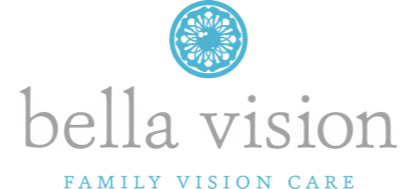What Is Optometric Vision Therapy?
Optometric vision therapy is an individualized, supervised, treatment program designed to correct visual-motor, perceptual, and cognitive deficiencies.
Our vision therapy program at Bella Vision in Spartanburg consists of an individualized plan of treatment procedures using lenses, prisms, instrumentation, and visual and bi-ocular occlusion to improve binocular function. These tools can help the eyes learn to work together to process visual information. Book an appointment with our eye doctors today to see how vision therapy can help!

What can Vision
Therapy do?
Optometric Vision Therapy sessions include procedures designed to enhance the brain’s ability to control:
- Amblyopia (lazy eye)
- Strabismus (eye turn)
- Eye tracking and eye teaming
- Eye focusing abilities
- Eye movements
- Eye-hand coordination
- Computer-related vision problems
- Visual processing
- Sports vision
Other treatment areas include:
- ADD/ADHD
- Autism and developmental delays
- Post-concussion syndrome and acquired brain injuries (ABI)
- Convergence insufficiencies and double vision
- Nonverbal learning disabilities (NVLD)
- Poor spatial awareness
- Vision and reading
- Vision loss
- Visual-motor problems
- Visual stress headaches

Take the Vision Therapy Questionnaire
Please fill out the following vision therapy symptoms questionnaire to help us get a better understanding of you or your child’s symptoms. Vision-related issues can pose a number of daily challenges, but we’re here to help develop a treatment plan right for you.

Finding the Right Vision Therapy Plan for You
The Comprehensive Eye Exam
Prior to beginning vision therapy, a patient is seen for a comprehensive eye exam followed by either a visual efficiency exam or a strabismus exam. These comprehensive examinations identify any weaknesses in accommodation, eye movements, binocular vision and visual perceptual skills. We also screen for screen for dyslexia and utilize technology such as the Visagraph in order to analyze how vision deficits are affecting reading performance.
The Consultation
A vision therapy consultation tests for multiple visual skills. The goal of your consultation is to determine whether vision therapy is right for you. From there, we create an individualized treatment plan to help your eyes and brain work together more cohesively.
Please bring any glasses or contacts you are currently using, as well as the report from your most recent eye exam.
The Treatment Plan
The frequency and duration of a vision therapy treatment plan varies with the diagnosis. A typical session at Bella Vision is one hour and usually requires one to two sessions per week. The patient will also receive “homework” for continuity between sessions.

Vision Therapy for Concussions
A concussion is a form of traumatic brain injury (TBI) that results in damaged or altered brain function due to an external force. This can be caused by falls, accidents, sports, or hits to the head. With brain function being directly related to your visual system, it’s essential to seek care from an eye doctor if you have sustained a concussion.
Concussions can result in vision problems such as eye strain, double vision, and light sensitivity, but the good news is vision therapy can help! An individualized treatment plan can help address these issues and train your brain to improve your visual skills.
Vision therapy for post-concussion management can include therapeutic techniques that focus on:
- Visual tracking
- Visual processing
- Eye teaming
- Eye focusing
- Hand-eye coordination
- Depth perception
If you or someone in your family has experienced a concussion, please visit us for a comprehensive eye exam to ensure your vision is working at its best.
Frequently Asked Questions
About Vision Therapy
Vision therapy can come with lots of questions! Here are some answers to our most frequently asked questions regarding vision therapy at Bella Vision in Spartanburg.
If you can’t find the answer you’re searching for, please get in touch with us.
Do All Eye Doctors Offer Vision Therapy?
Although all optometrists are trained in vision therapy principles during school, not all optometrists offer vision therapy in their office. At Bella Vision, we offer a variety of vision therapy treatments. Contact us today to learn more!
Is Vision Therapy the Same Everywhere?
Neuro-optometric vision therapy varies depending on the individual patient’s visual condition(s), the severity level of their eye problem(s), and the patient’s ability to participate in or complete training activities. Two patients may have the same diagnosis but may have completely different levels of severity, which can change the treatment plan. While general principles of vision therapy are the same overall, it is a dynamic therapy program that is tailored to each individual patient and can vary by location and treatment.
Is Vision Therapy Only for Children? Is Anyone Too Old for Vision Therapy?
Neuro-optometric vision therapy is not just for children! Patients of all ages can benefit from vision therapy.
Vision therapy works on the basis of the ability of the human brain to change, adapt, and grow throughout an individual’s life. With vision therapy we can make positive changes in our visual system at any age.
My Child Is Struggling in School. Could This be a Vision-Related Issue?
Yes! Today’s classrooms are more dynamic than ever, which require higher visual demands. Take a look around your child’s classroom; there are smart screens everywhere. We cannot assume that each child sees and processes information exactly the same way.
If you have concerns about whether your child has a vision-related learning problem, a good starting place is to schedule a comprehensive children’s eye exam.
My Child Has Always Passed Eye Tests at School & at our Family Eye Doctor. Could Their Struggles Still Be a Vision-related Issue?
Relying only on visual acuity tests, such as those done at school and by family doctors, is limiting because it only gives us information about the clarity of letters. Visual acuity tests don’t tell us if a child uses both eyes together equally, has adequate eye focusing skills, proper depth perception, or good visual perception. Only a comprehensive children’s eye exam can help determine if a child’s vision is adequate.
My Child’s Teacher Has Suggested My Child Might Have an Attention or Behavior Problem. How Could This Be Related to Their Vision?
If there is suspicion of an attention or behavior problem, we recommend starting with a comprehensive children’s eye exam first to rule out any vision problems. Many vision-related learning symptoms sound similar to ADD/ADHD:
- having difficulty remembering what has been read
- re-reading, using a finger to keep place while reading
- skipping lines of text
- reading slowly
- losing concentration
- avoidance of near work
My Child Hates Reading but can See Fine. Could This Be Related to a Vision Problem?
Children and adults that have vision-related learning problems can have various symptoms. Avoidance is one that is often overlooked. If a child is having difficulty reading, or they have to exert great effort to do so, then a common reaction is just to avoid the task. It can make the child look like they don’t care or like they have attention (ADD/ADHD) problems when in fact, it’s blurry and/or doubled when they are reading. Children especially don’t have a reference point, so if they are experiencing visual problems, they often think it is normal.
What Are Common Symptoms of a Vision Related Learning Problem?
Each patient is different and may or may not experience some or all of these symptoms. Through neuro-optometric vision therapy, these symptoms can be greatly reduced or eliminated entirely.
- Headaches
- Blurred vision or double vision
- Words moving on the page
- Having difficulty remembering what has been read or losing concentration
- Re-reading
- Using a finger to keep place
- Skipping lines of text
- Reading slowly
- Eyes that feel tired or hurt when reading
- Frequent eye rubbing
- Closing or covering an eye
- Confusing letters or words, or reversing letters or words
- Moving head while reading
- Car/motion sickness
Will Glasses or Contact Lenses Correct A Vision Condition?
Glasses and contact lenses are mainly used in order to improve visual acuity. If the problem is more complex, as with patients with poor eye alignment, eye teaming, or eye focusing, lenses may not complete alleviation symptoms. We use lenses as much as we can to improve how the visual system functions. From there, further testing may be needed to see if in-office vision therapy can benefit the patient.
Book a comprehensive eye exam to learn how Bella Vision can help your vision condition.
Will Surgery Help to Align A Turned Eye?
Surgical intervention should be approached on a case-by-case basis only, and with caution. In cases of strabismus (eye turn), if the eyes are surgically operated on in order to correct eye alignment, the brain does not know that the eyes have been moved. The brain in all its complexities is what ultimately controls the eyes, which is why vision therapy can be so effective in these cases. We give the patient the tools they need in order to understand how they are using their eyes together, which provides the best long-term results.
Book a comprehensive eye exam to learn how Bella Vision can help your vision condition.
My Child Recently Sustained a Head Injury & Is Experiencing Symptoms from It. Can Vision Therapy Help?
Absolutely. In cases of concussion and other various acquired brain injuries, optometric vision therapy can help reduce visual symptoms that are common after the incident. Even if there is no visible damage to the brain on MRI, there can be long-lasting effects that can affect the patient’s daily life. Common symptoms of a concussion or brain injury include:
- blurred vision
- double vision
- difficulty adjusting focus
- headaches
- difficulty processing and recalling information
- poor reading comprehension
No matter the cause of the head injury, vision therapy can be very effective.
How Long Does It Take to See Results from Vision Therapy?
Each patient’s response to vision therapy is unique depending on their individual diagnosis. After testing is completed, a treatment plan is discussed and put in place. After vision therapy has started, patients can start seeing results in as little as 8–10 weeks. There are no limitations to the progress one can make during the course of therapy.
Do Results from Vision Therapy Last Forever?
Once a neuro-optometric vision therapy treatment program is complete, there is very little regression as the patient now understands how to use their visual system. It gives the patient the tools they need in order to use their visual system to the best of their ability.
Is Vision Therapy Covered by My Insurance?
Typically, visual rehabilitation services are not covered by insurance. While our office does not file insurance for vision therapy, we can assist our patients during the process of requesting reimbursements from insurance companies.
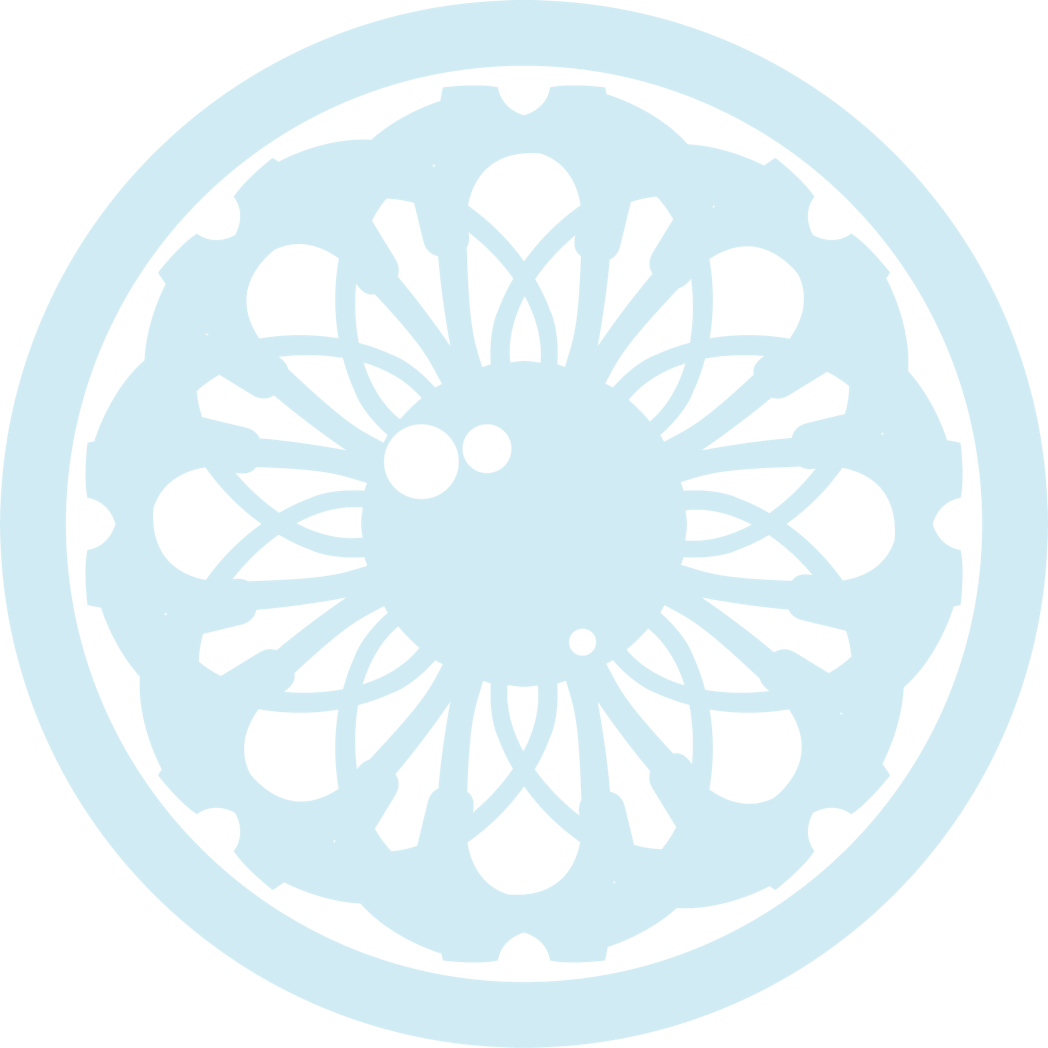
Our Location
Conveniently located on Spartanburg’s east side. If you have any difficulty locating us, please give us a call

Our Address
- 142 Fernwood Drive
- Spartanburg, South Carolina 29307
Contact Information
- Phone: 864-308-8812
- Fax: 864-308-8813
Hours of Operation
- Monday: 8:00 AM – 5:30 PM
- Tuesday: 8:00 AM – 5:30 PM
- Wednesday: 8:00 AM – 5:30 PM
- Thursday: 8:00 AM – 5:30 PM
- Friday: 8:00 AM – 12:00 PM
- Saturday: Closed
- Sunday: Closed

Our Services

Our Services
Our Brands
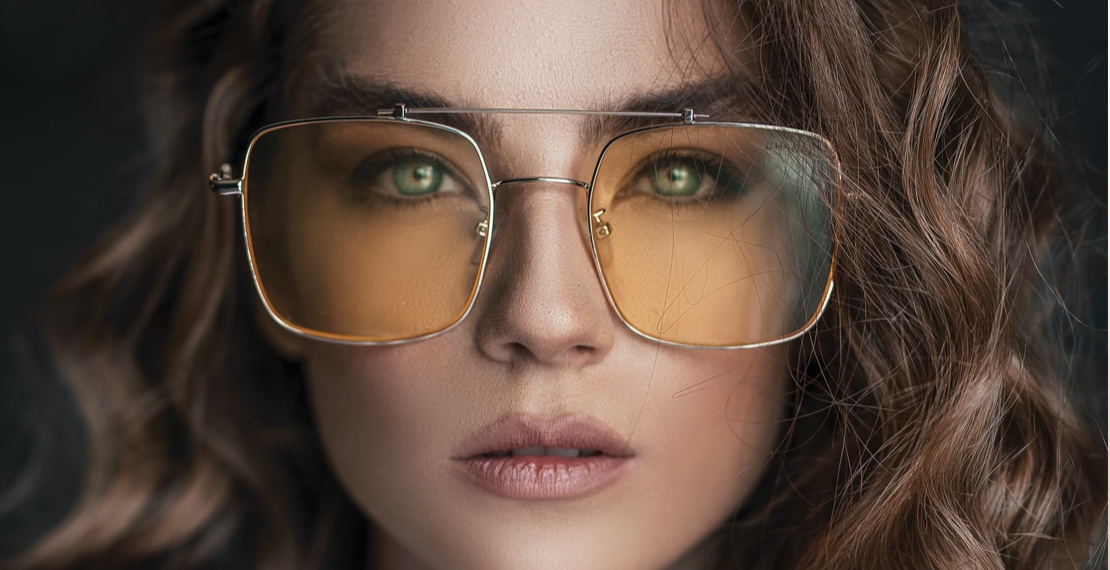
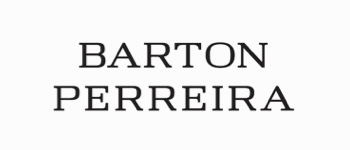

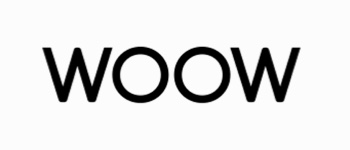
Our Google Reviews
Our Awards


Blog
What Is Commonly Misdiagnosed as Pink Eye (Conjunctivitis)?
Dry Eye, Eye Diseases, Eye HealthSeveral other eye conditions—from dry eye disease to allergies or even inflammation inside the eye—can cause redness and discomfort that mimic pink eye. […]
Can Dry Eyes Cause Double Vision?
Double Vision, Eye HealthFor some, dry eyes can cause what appears to be blurred or double vision. […]
How Long Do Vision Problems Last After a Concussion?
Vision TherapyWhen a concussion impacts your visual system, the effects may last for a few weeks. However, they’re usually temporary.
[…]
Can Vision Therapy Cure Strabismus?
Strabismus, Vision TherapyVision therapy can provide a functional improvement in many cases of strabismus and help many people achieve better eye alignment and coordination.
[…]
What Is Commonly Misdiagnosed as Pink Eye (Conjunctivitis)?
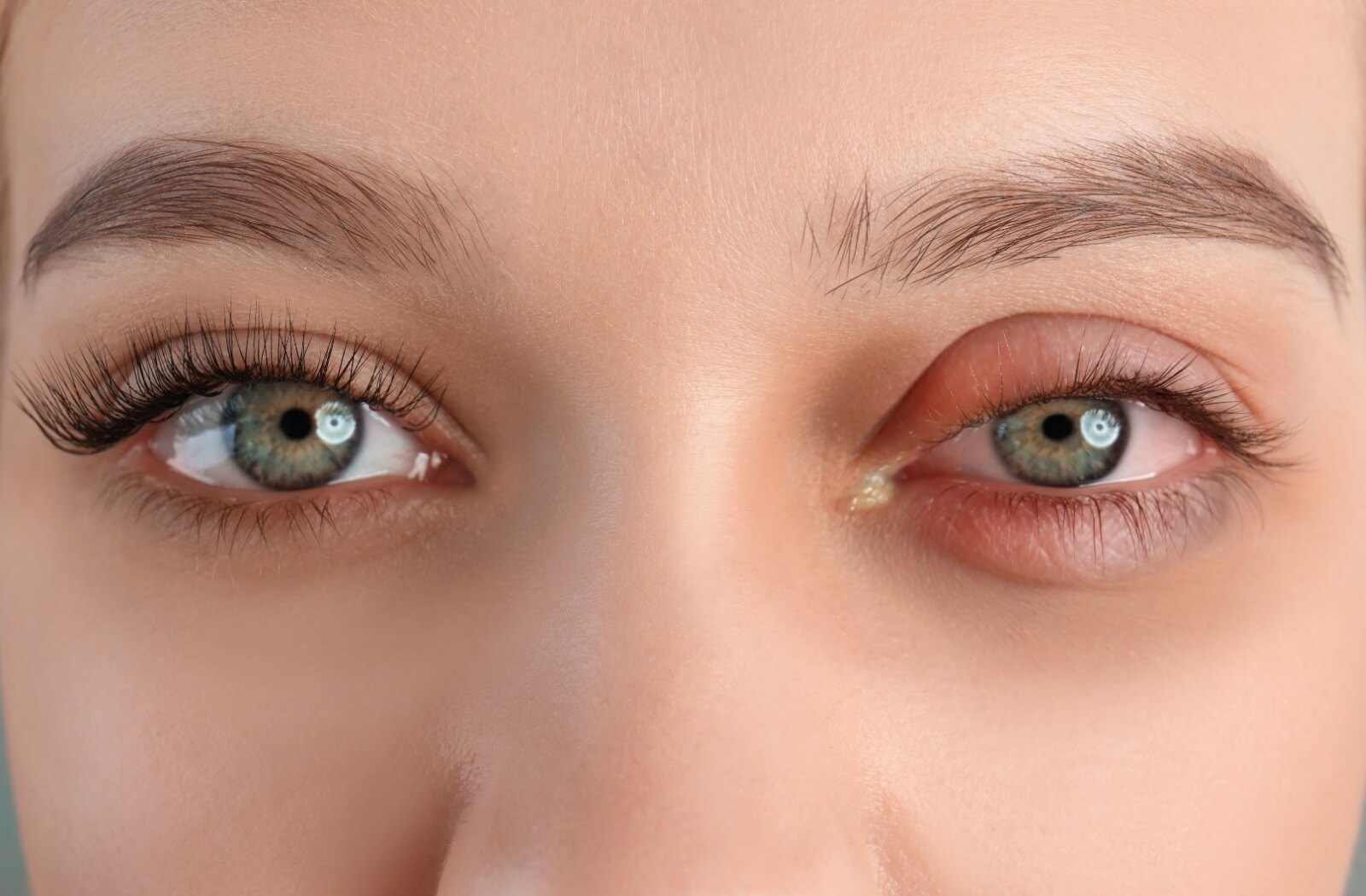
Several other eye conditions—from dry eye disease to allergies or even inflammation inside the eye—can cause redness and discomfort that mimic pink eye. […]
Can Dry Eyes Cause Double Vision?
How Long Do Vision Problems Last After a Concussion?

When a concussion impacts your visual system, the effects may last for a few weeks. However, they’re usually temporary.
[…]
Can Vision Therapy Cure Strabismus?
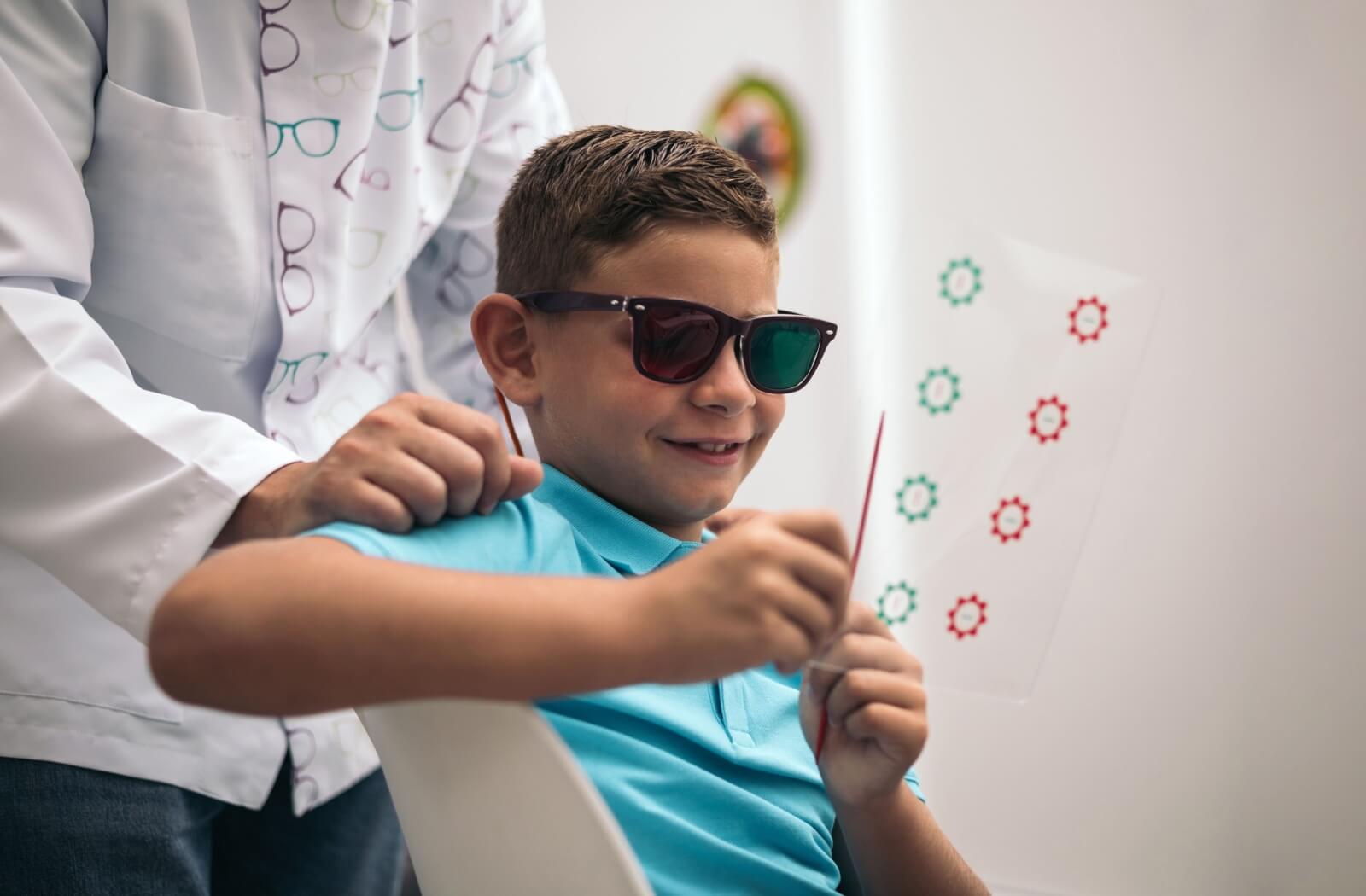
Vision therapy can provide a functional improvement in many cases of strabismus and help many people achieve better eye alignment and coordination.
[…]
